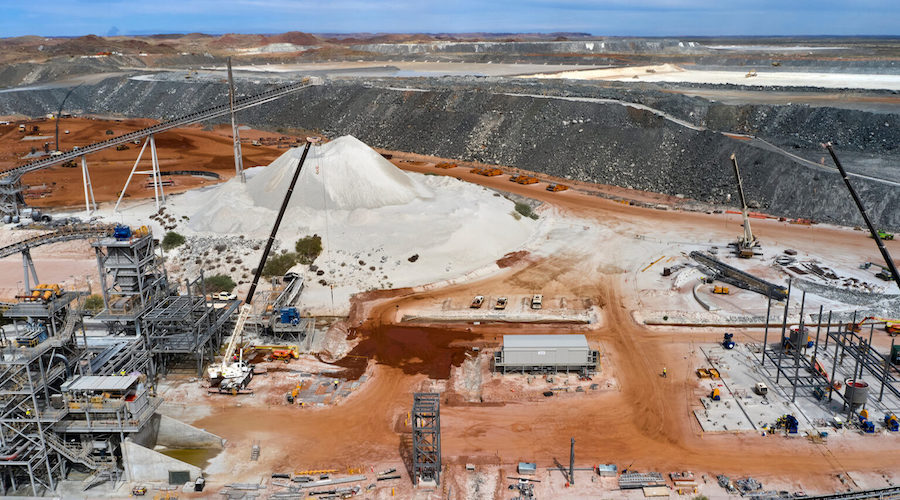What’s Coming: A Hyperinflationary or A Deflationary Depression?
While I believe that the US is heading towards a Weimar style hyperinflationary depression there are several developments that point to the possibility of another deflationary depression, similar to the 1930’s.
Lorimer Wilson, editor of www.FinancialArticleSummariesToday.com, provides below reformatted and edited [..] excerpts from Andy Sutton ’s (www.sutton-associates.net) original article* for the sake of clarity and brevity to ensure a fast and easy read. Sutton goes on to say: We’ll get to that later.
Inflation
For starters, let’s put to bed (hopefully) once and for all where price inflation comes from. Prices rise because the supply of money and/or credit has increased – effectively monetizing demand – which pushes up price levels. It is categorically impossible for general price levels to increase in the long run without a commensurate increase in the supply of money and credit. It is important here to make the distinction between short and long run. In the short run, an increase in general prices can be absorbed without a growth in the money supply because it could, in theory, be sustained by devouring savings but in practice, generally speaking, that isn’t how things work. People tend not to expand spending unless they feel comfortable that money and (particularly) credit are readily available.
Bubbles
The housing bubble of the early 21st century is a prime example. 30-year mortgage rates dropped steadily from 1981 through the present. Not surprisingly, low rates and readily available credit led to a massive price expansion by monetizing demand. The expansion in money to fuel lower mortgage rates and the expansion in home prices came from M3 in the US which nearly tripled during that period.
Deflation
That being said, one thing that should be utterly fearful of is the recent freefall of M3 growth. Most folks understand that inflation has been responsible for the vast majority of our economic ‘growth’ over the past century. Inflation fueled the dotcom and real estate bubbles. In short, our economy is set up to run in an inflationary environment. Unfortunately, there is a predictable end to this scheme. At some point, the monetary environment devolves into hyperinflation, then a deflationary collapse. We certainly haven’t experienced hyperinflation yet in the U.S., and we know the Fed can win a battle with deflation because it can create as much money as is necessary to overwhelm deflationary forces. The current Chairman didn’t get his nickname because he used to fly puddle jumpers. So we’re left to ask: what exactly is going on here?
Default/Devaluation; Deflationary Depression
I think the answer lies in the fact that there are roughly 20 countries right now that are on the verge of bankruptcy and an outright default – the U.S. and U.K. among them. In my opinion, we are likely moving towards a coordinated outright default, which will involve the devaluation of currencies followed by central banks capping money growth, which in turn will trigger a second deflationary depression. Most people realize that we now have a fiscal gap of around $100 Trillion just in the US alone. It cannot be filled via conventional means consisting of tax increases and program cuts.
There are two choices now: hyperinflation or default. While the collapse in M3 growth does not yet constitute de facto proof that we’re headed for the default scenario, it is certainly something that has to be considered. The good news in that scenario is that cash money would be worth more because it would be in short supply. The bad news is that there won’t be enough of it to maintain our current standard of living – especially in a situation where there is a concurrent devaluation.
Gold
The benefits of precious metals are well documented in the case of hyperinflation, but not so much so in the case of deflation. It is logical that if there is a shortage of cash, then the presence of cash ‘substitutes’ will be very beneficial. The rationale for holding precious metals will be different with deflation than if we experience hyperinflation, and their use would be different as well, but I think it is foolish to assume that owning gold would be a detriment in either case.
Down the Road
Hopefully everyone reading this understands the importance of watching the monetary aggregates for clues as to what is coming down the road. Ultimately, our monetary destiny lies in the hands of global banking interests. We will proceed down the path that best serves them, not our national interest.
Congress abdicated its responsibility for our money, as outlined in Article 1, Section 8 of the U.S. Constitution, when it passed the Federal Reserve Act back in 1913. The best thing this Congress could do with the rest of its time is craft and pass legislation to repeal that Act in its entirety.
*http://www.sutton-associates.net/issues/mtc_2010/mtc_04092010.php
Editor’s Note:
– The above article consists of reformatted edited excerpts from the original for the sake of brevity, clarity and to ensure a fast and easy read. The author’s views and conclusions are unaltered.
– Permission to reprint in whole or in part is gladly granted, provided full credit is given.
– Sign up to receive every article posted via Twitter, Facebook, RSS feed or our Weekly Newslette
{{ commodity.name }}
{{ post.title }}
{{ post.date }}




Comments